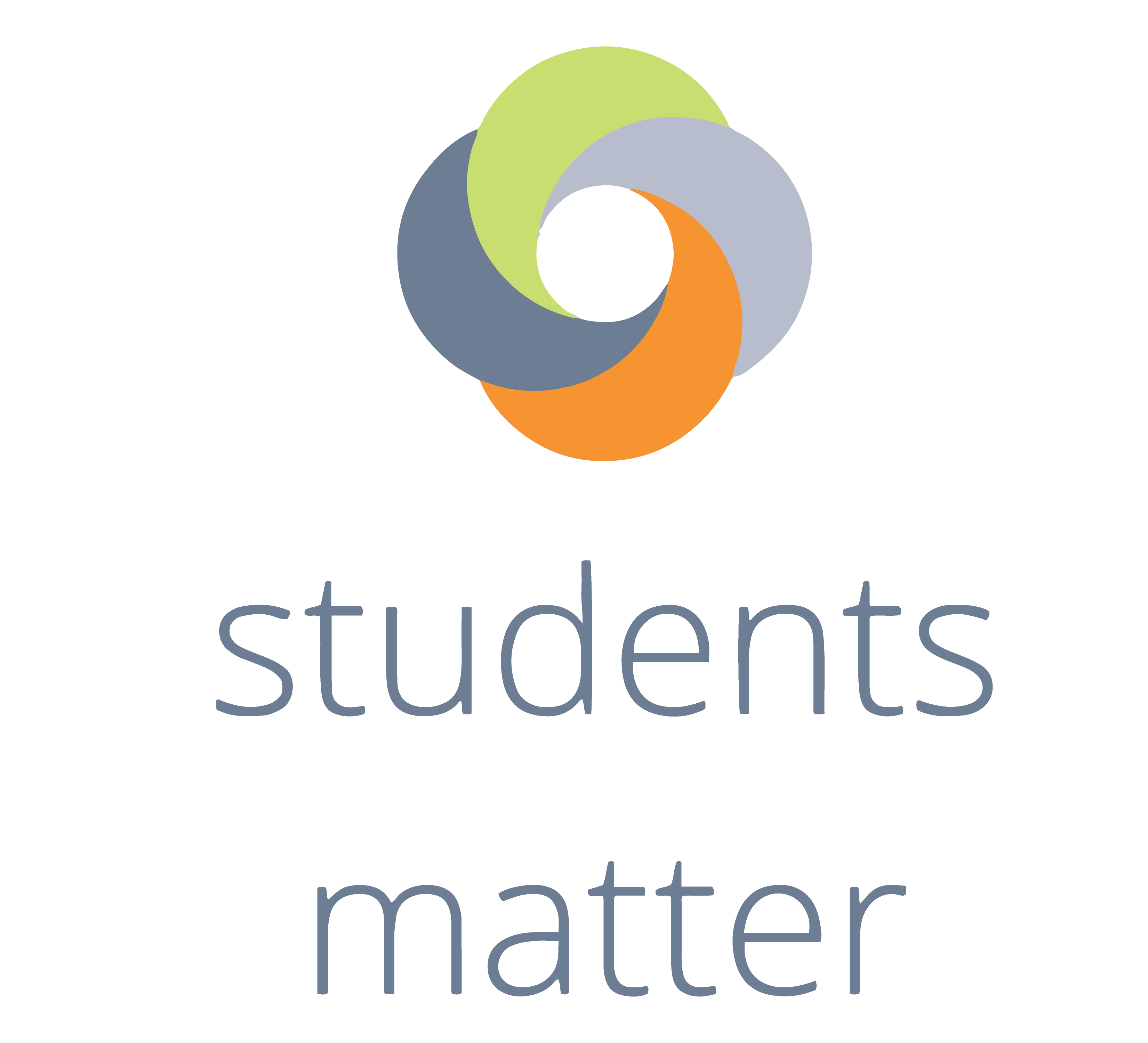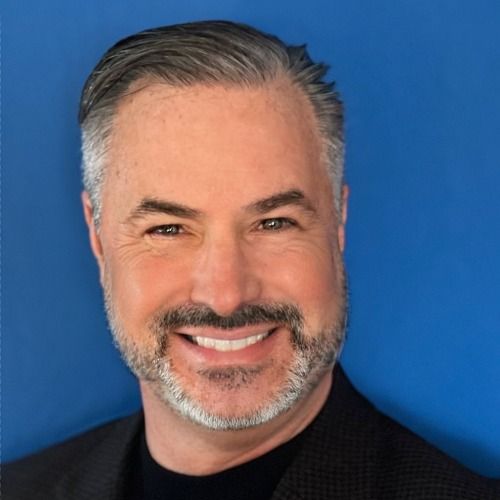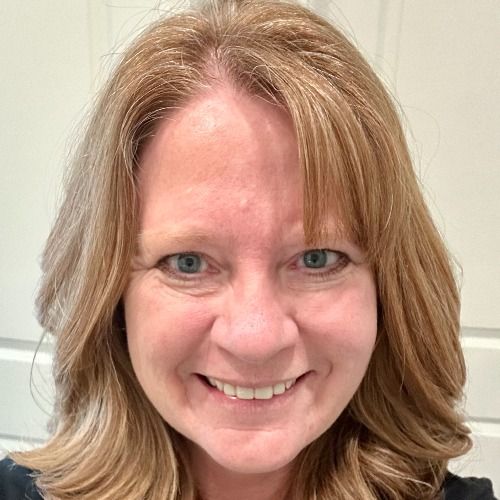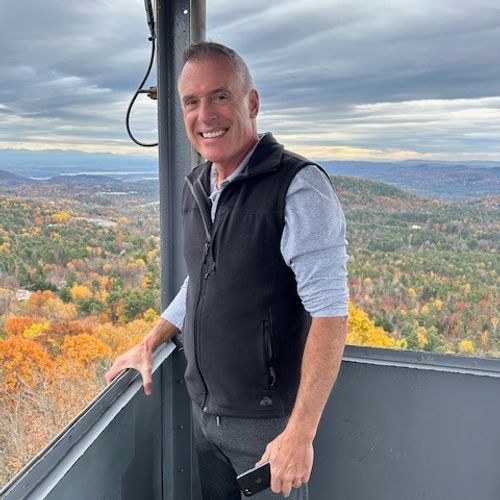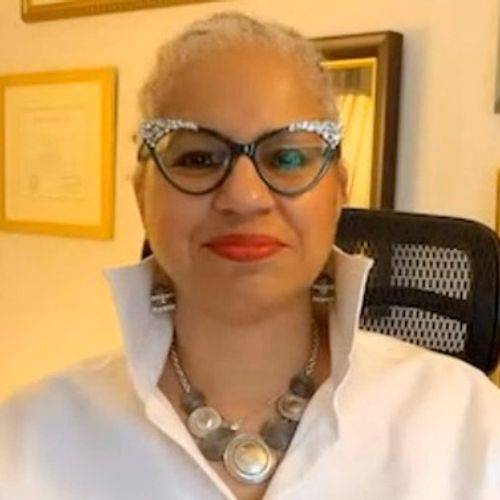Exploring Counter Dismissal Narratives in Education
In our ongoing dialogue with esteemed author and educator Ruben Britt Jr., we delve into the profound implications of extending empathy towards our students, thereby fostering an environment conducive to their multifaceted identities. The crux of our discussion centers on the reflective questions proposed in Britt's co-authored work, "Don't Dismiss My Story: The Tapestry of Colonized Voices in White Space." These inquiries serve as a catalyst for educators to contemplate their relationships with students, emphasizing the paramount importance of understanding and caring for each individual. As we conclude this enlightening conversation, we invite our audience to reflect on these pivotal questions that challenge us to cultivate hope rather than inadvertently stifle dreams. Ultimately, this episode underscores our collective responsibility as educators to recognize and nurture the inherent value of every student we serve.
In this enlightening continuation of our discussion with Ruben Britt Jr., we delve into the profound themes presented in the book, Don't Dismiss My Story: The Tapestry of Colonized Voices in White Space, written by Alicia Monroe and Britt. This episode is rich with insights regarding the importance of empathy in education, particularly in recognizing the complex identities of students. We actively engage with the reflective exercises proposed by Britt and Dr. Monroe, focusing on seven pivotal questions that educators should consider in their interactions with students. Each question serves as a profound prompt for educators to reflect on their understanding of their students, challenging them to confront their biases and deepen their relational practices. The discussion eloquently highlights the moral responsibility of educators to foster hope and affirm the dignity of every student. We explore the ramifications of neglecting this responsibility, as well as the transformative potential inherent in prioritizing authentic relationships within the educational landscape. Ultimately, this episode serves as a clarion call for educators to engage in introspection and action, ensuring that their pedagogical practices are rooted in care, connection, and commitment to student empowerment.
Takeaways:
- In our ongoing dialogue with Ruben Britt Jr., we emphasized the importance of understanding our students' multifaceted identities.
- The episode focuses on the necessity of cultivating hope within educational environments, particularly for marginalized students.
- We discussed pivotal reflective questions from the text that challenge educators to deepen their relationships with students.
- The conversation highlighted the profound impact of empathy and care in educational settings, which can transform student experiences.
- A significant theme of the episode revolved around the moral obligation of educators to prioritize student relationships above all.
- Ultimately, we concluded that education must be about cultivating hope, not merely managing expectations.
Their Book, Don't Dismiss My Story: The Tapestry of Colonized Voices in White Space, is available at Cognella and Amazon.
Subscribe to our Newsletter and join The Wheelhouse community:
Don't miss next week's episode when we welcome Dr. Shervita Jordan-West to The Wheelhouse to talk about sensory learning environments. It's another don't miss it episode.
Transcript
It's the second part of our conversation with author and educator Reuben Britt Jr.
Speaker A:A new episode of the Wheelhouse begins right now.
Speaker A:Thank you so much for taking time out of your busy day to give us a listen.
Speaker A:Season nine features a panel of four like minded friends and colleagues.
Speaker A:Kathy Mone, Michael Pipa, Dr.
Speaker A:Alicia Monroe, and yours truly.
Speaker A:We've opened up the conversation this season to think about empowering educators to cultivate hope.
Speaker A:In our sixth episode, we welcomed Ruben Britt Jr.
Speaker A:A master educator and co author of an amazing text that he wrote with Dr.
Speaker A:Don't dismiss my Story, the Tapestry of Colonized Voices in White Space, currently available on Amazon and Cognello.
Speaker A:We had an amazing conversation about what it means to extend empathy to our students and to really understand who they are with all of the complexities that a multidimensional identity brings with it.
Speaker A:Their book, Don't Dismiss My Story is a counter dismissal narrative.
Speaker A:Now if you're not sure what a counter dismissal narrative is, take a listen to episode six.
Speaker A:But in this episode, as we wrap up that amazing conversation with Ruben and Alicia as well as the rest of our panel, we're going to look at seven questions that they offer us as a reflective exercise toward the end of their book.
Speaker A:It is an amazing conversation.
Speaker A:I thought it was so powerful I wanted to split it up into two episodes so that you could savor the genius that comes from both of them together.
Speaker A:Let's cultivate hope for each and every student.
Speaker A:And now, episode seven at the second part of our conversation with our special guest Reuben Britt Jr.
Speaker A:Talking about this amazing text, Don't Dismiss my the Tapestry of Colonized Voices in White Space.
Speaker A:You're not going to want to miss this.
Speaker A:Take a listen.
Speaker B:So in the book, Dr.
Speaker B:Munro and Ruben identified these really powerful questions.
Speaker B:It was a reflective exercise in one of the chapters.
Speaker B:But I think it's just really important, these questions that really form the basis of any relationship, of any relationship, human to human.
Speaker B:And they're absolutely brilliant questions.
Speaker B:And so I want to throw those into this space to continue this conversation around this amazing book.
Speaker B:And these, these were the questions that I thought were just genius.
Speaker B:Simple, yet so powerful.
Speaker B:Do you know me?
Speaker B:What do you know about me?
Speaker B:Do you care about me?
Speaker B:Do you want to know more about me?
Speaker B:What are your assumptions?
Speaker B:How can we better understand each other?
Speaker B:Finally, Do I matter to you?
Speaker B:I'm just gonna open this up to say I just love those questions.
Speaker B:Why are those so powerful?
Speaker C:I think the silence in the room, you know, often I know when you're, you're editing.
Speaker C:You will, you know, you'll, you'll cut those out.
Speaker C:But I think that that pause is so important.
Speaker C:I think those questions are, are, are simple.
Speaker C:And I know I said this earlier, but they're the, they're so profound.
Speaker C:And to really think about as educators, asking those questions of our students that we're entrusted with and being willing to listen to have that, that pause that we just had and let that take up space.
Speaker B:Yeah, I was reading them and thinking about the story that Ruben told us earlier about Jamal.
Speaker B:And what comes to mind right away is if you didn't know something so simple about Jamal, what else are you missing?
Speaker B:And how can you answer, you know, how can you say, right, I care.
Speaker D:About you, I just feel that.
Speaker D:Again and again, we're asked as educators to examine our motives for taking the position of teacher.
Speaker D:And if you're going to serve in this profession, who are you serving?
Speaker D:What are you serving?
Speaker D:And if you're going to prioritize something over the development of a relationship with the young people with whom you're going to work, I feel like your service has gone awry right from the get go.
Speaker D:And those questions, they go deeper than simply, you know, I want to get to know you.
Speaker D:They get to the literal and figurative heart of the matter of learning.
Speaker D:I want to get to know you because you matter.
Speaker D:And I want to understand all of the ways that you experience the world.
Speaker D:Your take on as much as I can hear, that's where it begins.
Speaker D:But it's a, that's why relationships, when we decide to invest in their creation, become so powerful and so rewarding and they have this duration because they, they start in the right place and they're made of the right things.
Speaker D:But how is it that, how is it, it's possible to even think we're doing this work without prioritizing and using questions like this as our origin, as our beginning, as our outset, as our roadmap.
Speaker E:Mike, well said.
Speaker E:What's interesting in terms of what you said is that sometimes they may.
Speaker D:You.
Speaker E:Know, they may respond to a couple of those questions in a positive way, but you gotta, you gotta be all in.
Speaker E:You can't be, you know, half here and half there.
Speaker E:And sometimes because they do, they're not all in.
Speaker E:Many of these students are traumatized, and because of that, it prevents them from being, prevents them from learning.
Speaker E:And statistics are showing the students are traumatized, they are unable to learn.
Speaker E:It even affects the iq.
Speaker E:I mean, it goes on and on and on about that.
Speaker E:And I call these folks dream killers.
Speaker E:And I can tell you another story that happened even at this college that I work at.
Speaker E:You had a young lady who had taken a professor taking a couple of classes with this professor.
Speaker E:So she knew him and he knew her.
Speaker E:So she was looking at applying.
Speaker E:She was applying to the University of Pennsylvania.
Speaker E:And so she went to him and asked him for a letter of reference.
Speaker E:And he told her she wasn't penned material.
Speaker E:And she was devastated.
Speaker E:Fortunately, she knew.
Speaker E:She went to somebody who looked like her, who encouraged her and said, I will write you the letter of recommendation.
Speaker E:I believe it was about five or six years ago.
Speaker E:She completed her doctorate degree.
Speaker D:Oh, my gosh.
Speaker E:At the University of Penn.
Speaker E:Right.
Speaker E:But that's just probably one trillionth if there's such word of stories like that.
Speaker D:Absolutely.
Speaker E:You know, and then, you know, it's so do they really matter?
Speaker E:Do you really care about me?
Speaker E:All these types.
Speaker E:And then going back to this person's assumption, yeah, she's a good student.
Speaker E:She did well in my class.
Speaker E:But I don't think, see, going back.
Speaker D:To personal bias, personal bias and this idea that when you live an unexamined life, you.
Speaker D:You're totally numb to when bias is operating.
Speaker C:And it's that power structure that Alicia talked about earlier, right?
Speaker C:So it's this.
Speaker C:I.
Speaker C:I hold this.
Speaker C:This power over you and enough to be able to kill these dreams.
Speaker D:And I'm ashamed to say, Reuben, I.
Speaker D:I know that story in another school, in another setting.
Speaker B:I think, I think we all.
Speaker B:Right.
Speaker B:I think we all have countless examples of whether, you know, Alicia said it in the very first episode of this season.
Speaker B:We continue to say it.
Speaker B:Reuben just said it, right?
Speaker A:Are we in the business.
Speaker B:Of cultivating hope or killing dreams?
Speaker B:Because it's not.
Speaker B:You don't get to do both, right?
Speaker B:You don't get to do both.
Speaker B:Maybe you get to do one, right?
Speaker B:So which one are you choosing?
Speaker B:Which one are you choosing?
Speaker B:And who are you choosing it for?
Speaker D:Right?
Speaker F:Who are you choosing it for?
Speaker F:And then own it, right?
Speaker F:So if you're here and you cultivate hope and you promoting hope, own that.
Speaker F:If you're here and you killing dreams, own it, right?
Speaker F:But don't mask dream killing with cultivating hope, right?
Speaker F:Then you're lukewarm, right?
Speaker F:And that's the state of education today.
Speaker F:If you want to sit and collect a check and do two months off, like, be true to yourself, right?
Speaker F:Because students are coming into space damaged.
Speaker F:Educators are coming into space damage.
Speaker F:There is a whole section in the book dedicated to discussing and Deconstructing the invisible backpack, right?
Speaker F:And our space here is dedicated to powerful student care and dignity and respect and hope.
Speaker F:But we have some real damaged educators, right, that are coming in with adult childhood experiences, right?
Speaker F:Those aces.
Speaker F:And they haven't even unpacked their stuff, right?
Speaker F:But then they stand in front of our students in this attempt to develop relationship.
Speaker F:Well, if you have damage, right, then all you can give is damage, right?
Speaker F:But at least center that and be able to have those transparent conversations and know that you can do.
Speaker F:But so much and no more.
Speaker F:But I think what's missing is what centers the book, which is a truth narrative.
Speaker F:So those questions that you lift so nicely, Grant, we have located towards the end of the book because we were deliberate and mindful because the book is developed like a curriculum.
Speaker F:It's a build up, right?
Speaker F:Every, every, every chapter starts with a quote, an epigraph.
Speaker F:Then you have some pre questions, then you have some narrative, then you have some takeaways, then you have some reflection questions.
Speaker F:So in order to shift paradigms, we know that everyone is sitting in a, in a really deeply entrenched mental model.
Speaker F:They really have to sit with themselves.
Speaker F:Even a resistor that resists needs to sit with themselves if they really want to be impactful, positively impactful and cultivate hope for the students that we serve.
Speaker E:You know, and Dr.
Speaker E:Munro knows about this story.
Speaker E:I remember back in my days when I was teaching Boston public school system and there was this, you know, we were getting ready to go on a spring break, so I would go around and ask the students what, what are they going to be doing during the Easter break?
Speaker E:And so this one young lady said, Mr.
Speaker E:Brett, I'm going to, I'm going, going to Dominican Republic to visit my grandmother.
Speaker E:And I said oh really?
Speaker E:And I said so, so is there anything special you're going to be doing when you're visiting your grandmother?
Speaker E:Oh, she, she likes to cook.
Speaker E:And, and so you could see the look on her face that she.
Speaker E:Of excitement that I was listening to her, that I cared.
Speaker E:And, and I said, you know, your whole family going.
Speaker E:So I kept asking a question.
Speaker E:So it, it.
Speaker E:And also went back body language too, because, but anyways, what was really touching about this story was when she came back to school, she brought me back a T shirt from the Dominican Republic.
Speaker E:I didn't ask her any, but I was touched by that.
Speaker E:And I remember her facial expression when I was asking all these questions.
Speaker E:And she said, I brought you something, Mr.
Speaker E:Britt.
Speaker E:And I'm like.
Speaker E:And she brought me This T shirt from the Dominican Republican.
Speaker E:I was moved by it.
Speaker E:That's one of those moving stories that happened in my career.
Speaker E:But that's just a small story of many that I could share with you.
Speaker E:But it goes back to those questions.
Speaker E:Grant, do you care?
Speaker E:And I did care.
Speaker E:And also we have this thing where when teachers will tell students information that can be helpful, but the way they deliver it, if they're saying, yeah, you go down here and get an application, fill up final.
Speaker E:If I'm not showing enthusiasm, if I'm not showing that I really care, I'm just kind of giving you information.
Speaker E:It also attributes to their success as well as their faith.
Speaker B:I mean, absolutely.
Speaker B:This is, this is, this is the moral imperative or the moral obligation that we bring to you.
Speaker B:Not everybody can be a teacher.
Speaker B:Not everybody can be an educator.
Speaker B:Not everybody should be an educator because with accepting that role, we should be accepting the moral imperative of doing what we've been talking about today for each and every student who comes in our.
Speaker A:Door, regardless of who they are, where they come from, how they identify.
Speaker A:Because at the end of the day.
Speaker B:As educators, right, it's our job.
Speaker B:It's our job to care.
Speaker B:It's our job to cultivate hope in.
Speaker A:This crazy world we live in in.
Speaker B:2025, my friends, right?
Speaker B:If we don't do it, who will?
Speaker A:Who will?
Speaker B:I want to say thank you so much to Reuben Britt for joining us today and talking about that amazing book that he wrote with Dr.
Speaker B:Monroe.
Speaker B:Don't dismiss my the Tapestry of Colonized Voices in White Space that is available at Amazon.
Speaker B:It's available at Cognella.
Speaker B:I'll put the link in our show notes.
Speaker B:Thank you so much for gracing us with your presence today, sir.
Speaker B:It has been an honor to have this conversation with you and I hope that we will continue that conversation in the future.
Speaker B:So this wraps up this episode of the Wheelhouse.
Speaker B:I'll see you next week.
Speaker A:And that's a wrap of episode 7 in this season of the Wheelhouse.
Speaker A:You know, a really special thank you to Ruben Britt Jr.
Speaker A:And Dr.
Speaker A:Alicia Munro for joining us in these two.
Speaker B:Episodes to to talk about their amazing book.
Speaker A:Again, the title of that book is Don't Dismiss my the Tapestry of Colonized Voices in White Space.
Speaker A:Are you a like minded educator who's committed to promoting hope?
Speaker A:Subscribe to our all new wheelhouse newsletter@thewheelhouse.substack.com Talk to us.
Speaker A:How are you accepting the collective responsibility for every human you serve?
Speaker A:How are you building community and establishing a shared vision that recognizes the humanity of each complex, dynamic individual.
Speaker A:And how can we here at the Wheelhouse help you reach these aspirational leaps and jumps?
Speaker A:You know, we really do want to hear from you and we hope that you'll subscribe to our all new Wheelhouse newsletter and join this community of like minded educators.
Speaker A:The Wheelhouse is a production of Students Matter LLC.
Speaker A:New episodes of season nine will drop every Tuesday beginning February 25th and it's now extended through May 13th.
Speaker A:Our show's theme music, Off We Go was written and performed by Cody Martin and obtained through soundstripe.com youm can find me on LinkedIn and of course on Bluesky and stop by our website and check out what we have to offer.
Speaker B:You can subscribe to this podcast on.
Speaker A:Either itunes, Spotify or wherever you listen to podcasts together.
Speaker A:Our goal is to prove to each student and to each educator that they are both distinctive and irreplaceable.
Speaker A:Until next time.
Speaker A:Remember, we got this.
